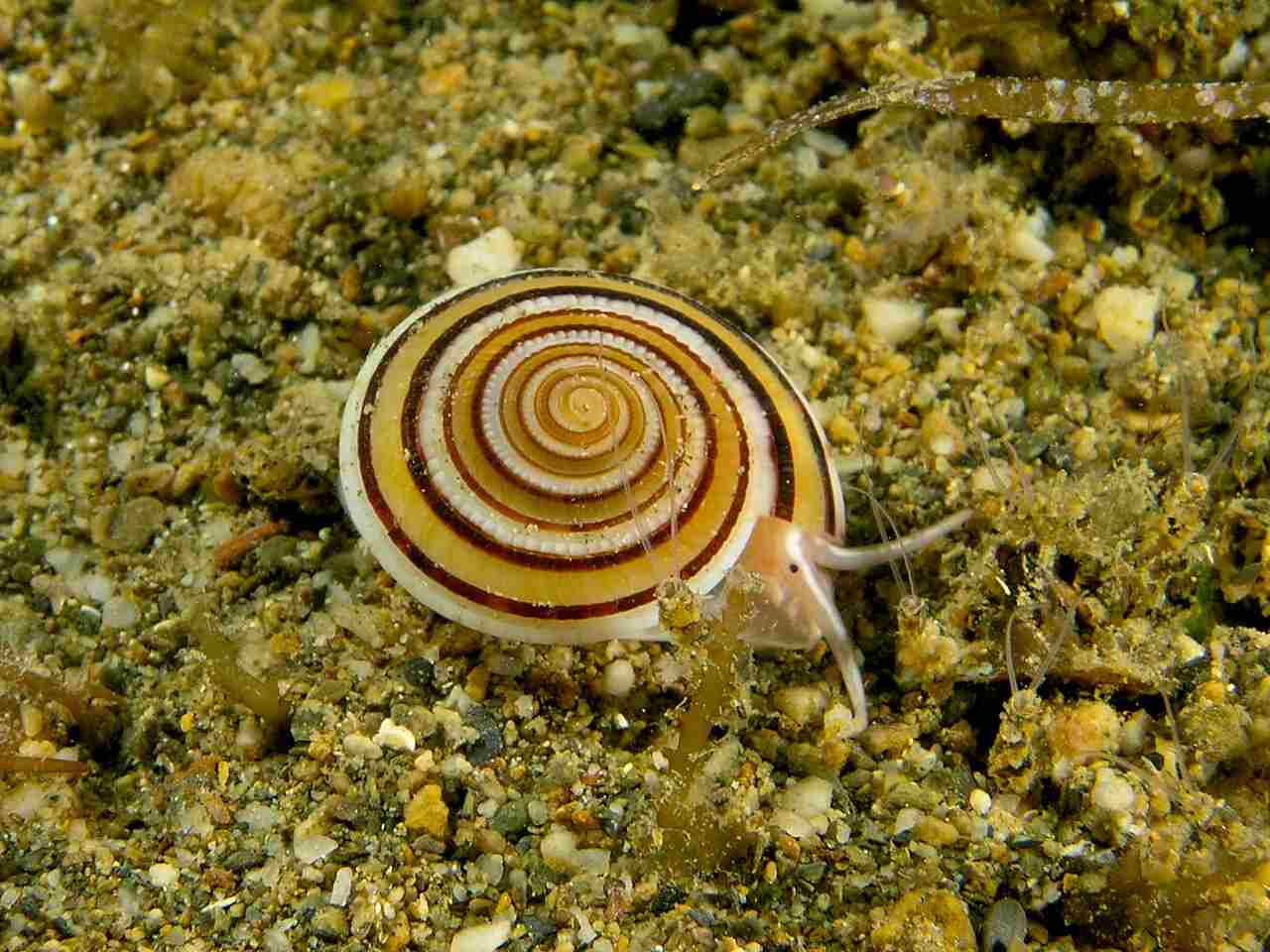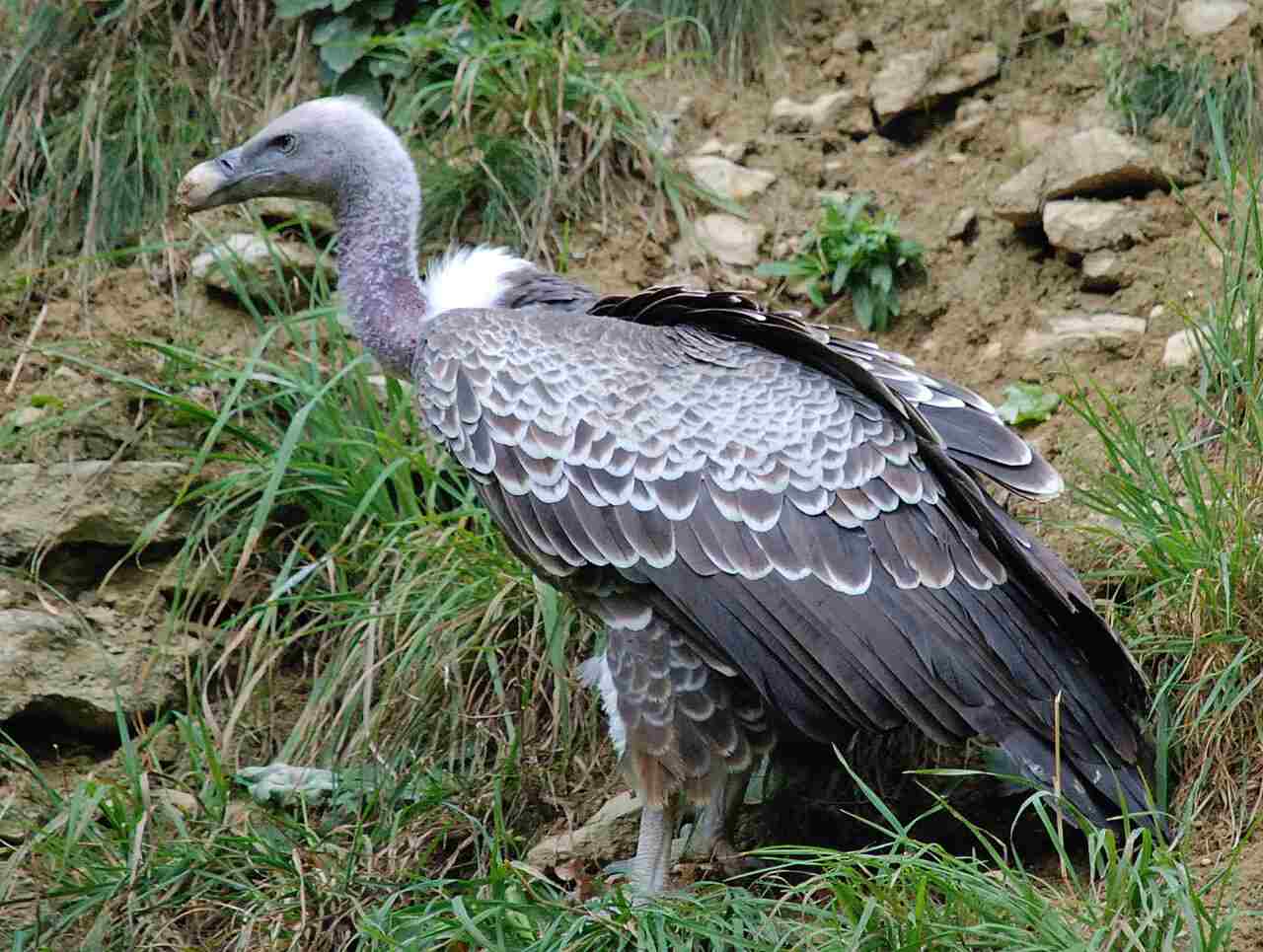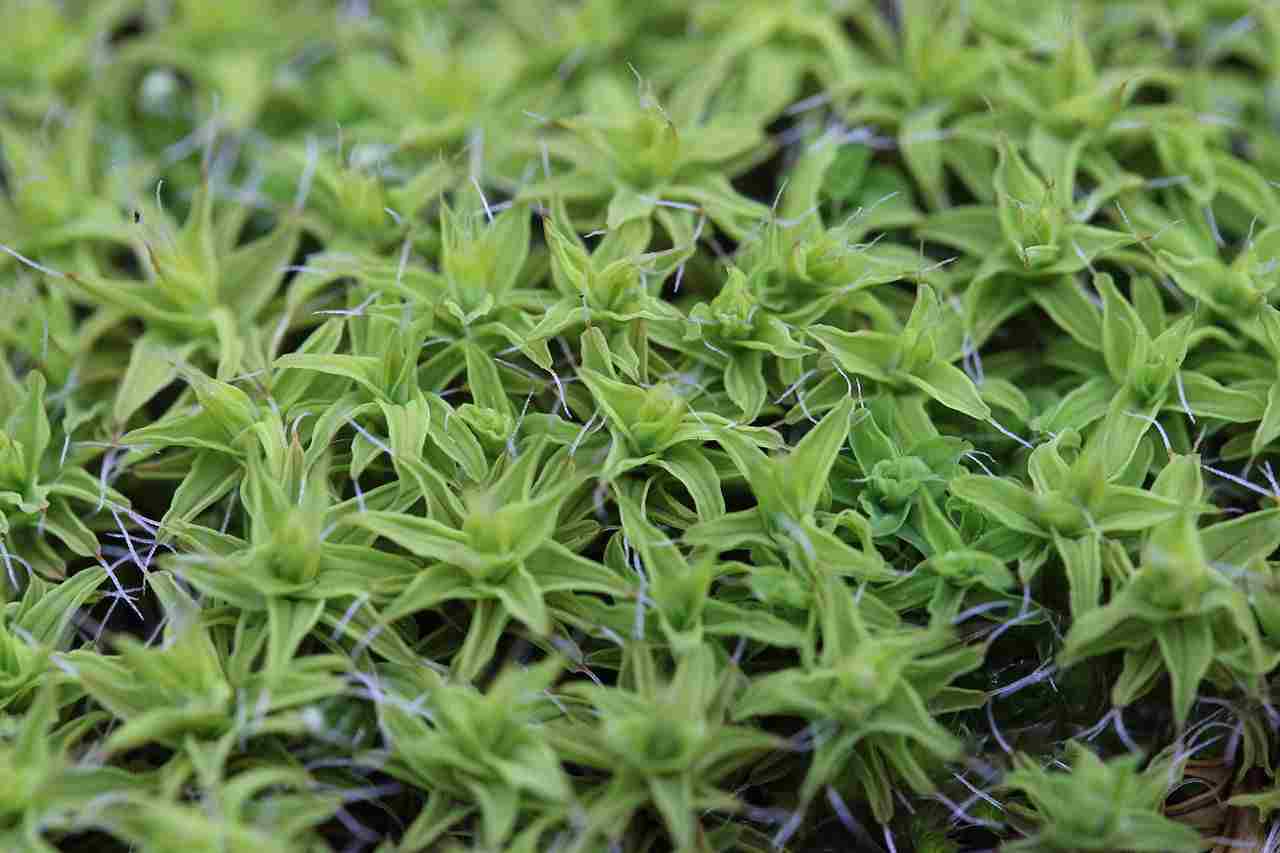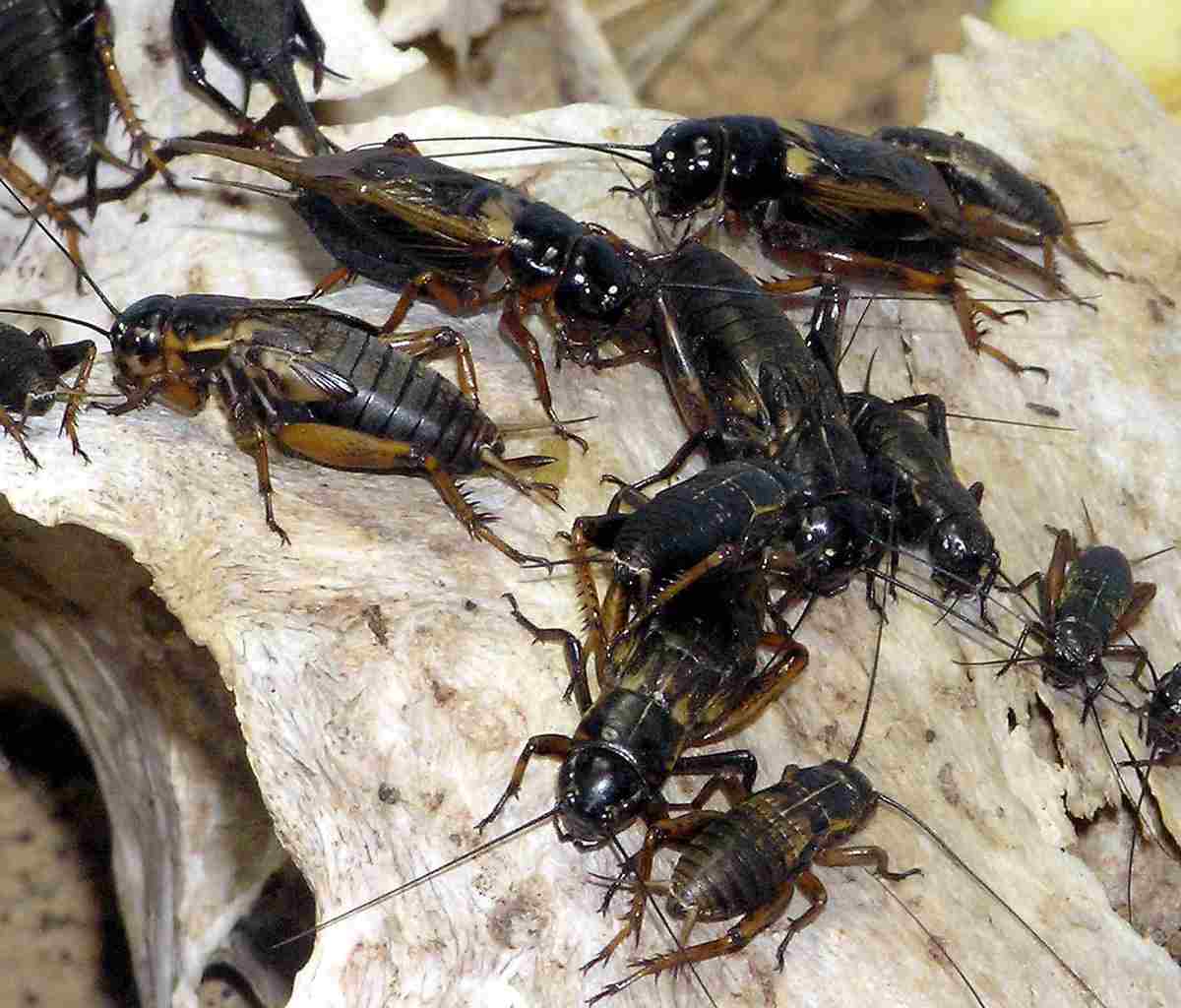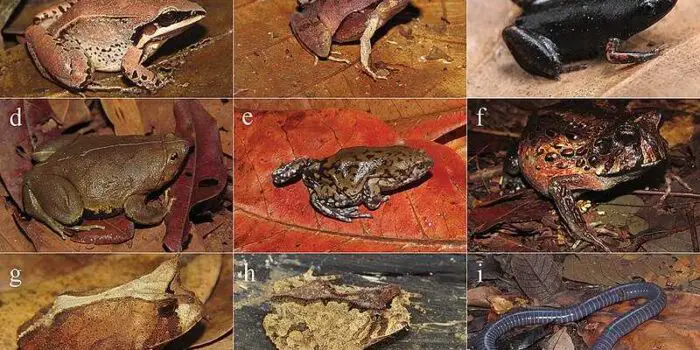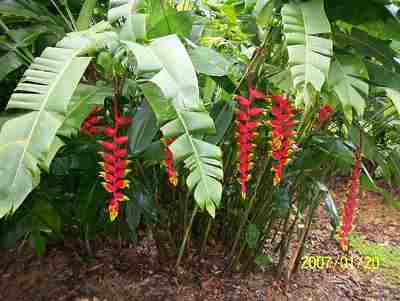Are Earthworms Decomposers? Analyzing Earthworms as Decomposers
Earthworms play a crucial role in decomposition within ecosystems, breaking down organic matter such as dead leaves and plant material. They ingest this organic matter, digest it, and then excrete nutrient-rich castings that enrich the soil. While they are not saprophytes like fungi or bacteria, earthworms are considered detritivorous decomposers, as they primarily feed on decaying organic matter. This makes them vital contributors to nutrient cycling and soil health in various ecosystems.
Reasons Why Earthworms are Not Producers
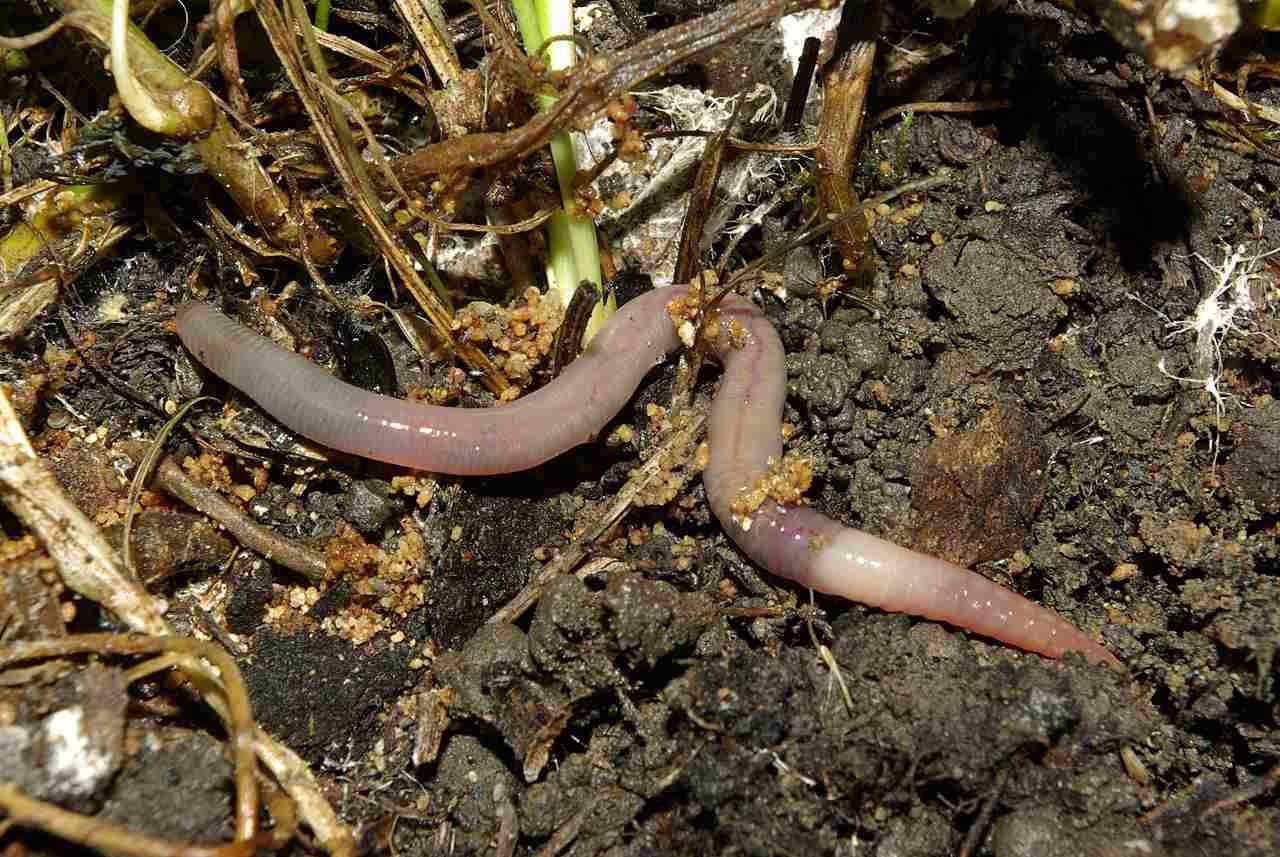
-
Heterotrophic Nutrition: Earthworms cannot produce their own food through photosynthesis like producers (such as plants). Instead, they rely on consuming organic matter for energy, making them heterotrophs.
-
Absence of Chlorophyll: Unlike producers, earthworms lack chlorophyll, the pigment necessary for photosynthesis. Chlorophyll enables producers to convert sunlight into energy, a process earthworms are incapable of performing.
-
Role in Decomposition: Earthworms primarily function as decomposers, breaking down dead organic matter into simpler substances. While producers contribute to ecosystem productivity by generating biomass, earthworms contribute to nutrient cycling by breaking down organic material.
In general, these factors illustrate why earthworms are classified as decomposers rather than producers in ecological terms.
Are Earthworms Consumers?
In certain ecological classifications, earthworms can be categorized as consumers due to their heterotrophic mode of nutrition. Here are some reasons why earthworms can be considered consumers in certain contexts:
-
Feeding Behavior: Earthworms consume organic matter as their primary source of energy. They actively feed on dead plant material, decaying leaves, and other organic debris present in the soil.
-
Digestive Process: After ingesting organic matter, earthworms break it down internally through digestion, extracting nutrients and energy for their own metabolic processes.
-
Contribution to Energy Flow: As consumers, earthworms play a role in transferring energy through the food chain. They convert organic matter into biomass and nutrients, which can then be utilized by other organisms within the ecosystem.
While earthworms are primarily recognized as detritivores and decomposers, their role as consumers highlights their importance in nutrient cycling and energy transfer within ecosystems.
Is Earthworm a Decomposer or a Consumer?
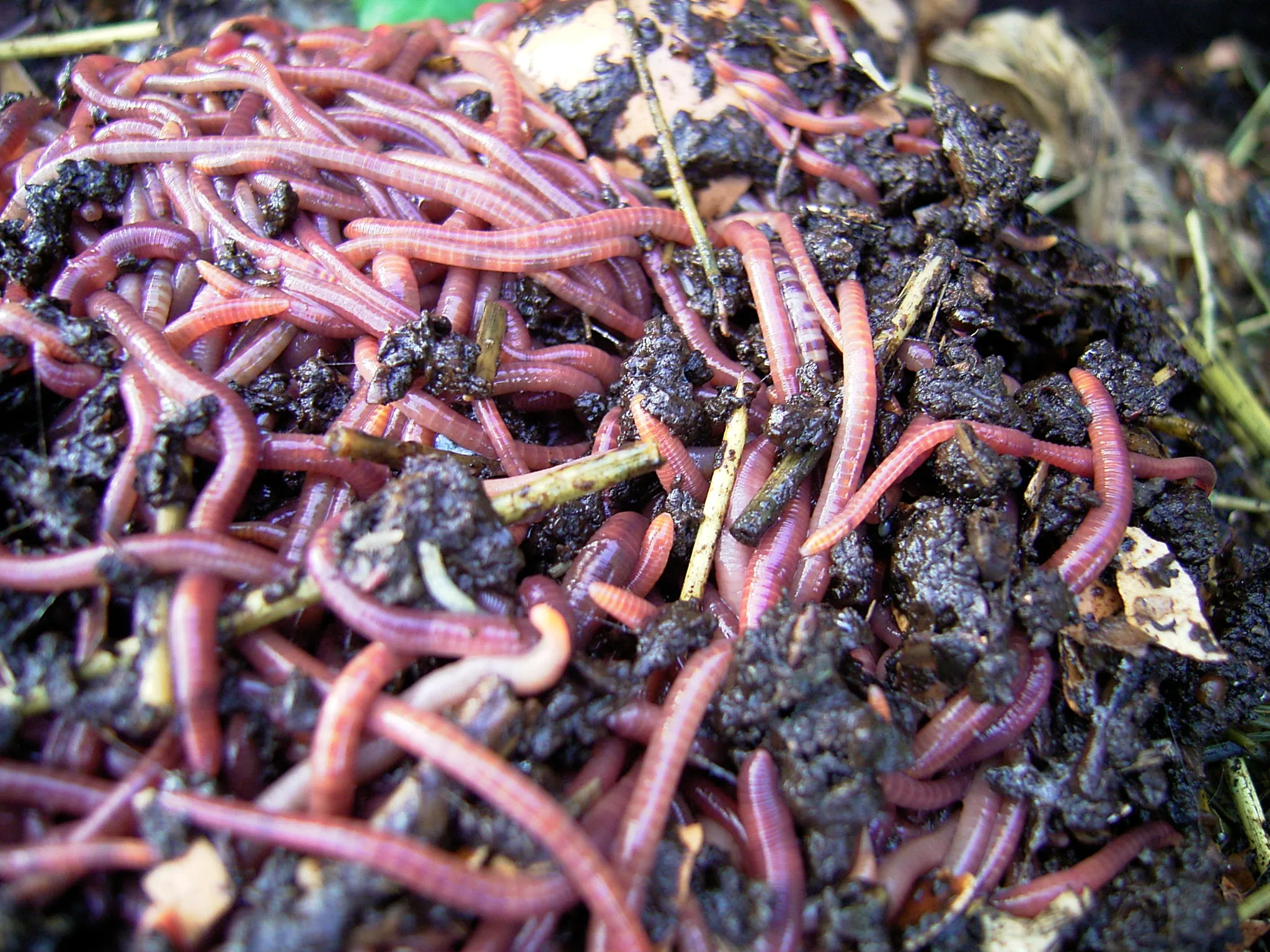
Earthworms can be classified as both decomposers and consumers, depending on the specific context and ecological perspective. Here’s a breakdown:
-
Decomposer Role: Earthworms are vital decomposers in ecosystems. They break down dead organic matter, such as fallen leaves and plant material, through their feeding and digestive processes. This decomposition process contributes to the breakdown of complex organic compounds into simpler substances, returning nutrients to the soil.
-
Consumer Role: Earthworms are also considered consumers due to their heterotrophic mode of nutrition. They actively ingest organic matter as their primary food source, digesting it internally to extract nutrients and energy for their own growth and metabolism.
Is Earthworm a Detritivore or Decomposer?
Earthworms are primarily classified as detritivores, organisms that feed on decaying organic matter, such as dead plant material and leaf litter. However, they also play a significant role as decomposers in ecosystems. Here’s why:
-
Detritivore Role: Earthworms actively consume detritus, breaking down dead organic matter into smaller particles as they feed. This process helps to physically fragment organic material, facilitating its decomposition by other microorganisms.
-
Decomposer Role: Additionally, earthworms contribute to decomposition through their digestive processes. They ingest organic matter and internally digest it, breaking down complex compounds into simpler forms. The nutrients released through this digestion process are then excreted as castings, enriching the soil and supporting plant growth.
While earthworms are primarily detritivores, their role in decomposition makes them important contributors to nutrient cycling and soil fertility in various ecosystems.
How Do Earthworms Decompose?
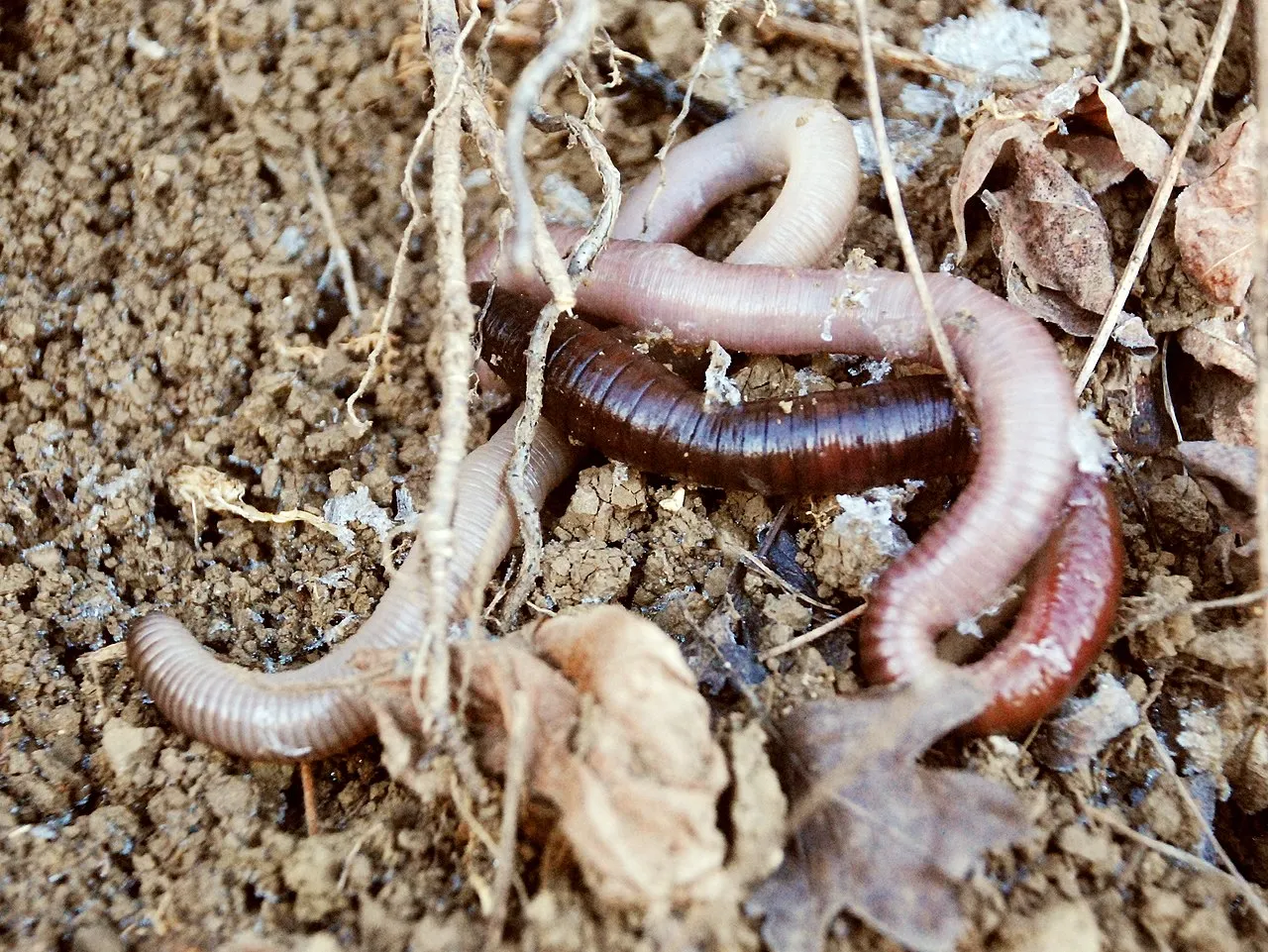
Earthworms contribute to decomposition through their feeding and digestive processes:
-
Feeding Behavior: Earthworms actively feed on dead organic matter, such as fallen leaves, plant debris, and decaying plant material found in the soil. They ingest this organic matter through their mouth and grind it with the help of abrasive particles in their gizzard.
-
Digestive Process: Inside the earthworm’s digestive system, enzymes break down the ingested organic matter into simpler compounds. The nutrients are absorbed into the earthworm’s body to support its growth and metabolism, while the indigestible material forms fecal pellets.
-
Excretion of Castings: The processed organic matter is excreted by the earthworm as nutrient-rich castings. These castings contain digested organic material along with beneficial microorganisms. When deposited in the soil, earthworm castings contribute to soil fertility, enhancing its structure and nutrient content.
In general, earthworms play a crucial role in decomposition by breaking down organic matter and releasing nutrients back into the soil, thus supporting plant growth and ecosystem health.
Are Earthworms Decomposers or Detritivores?
Earthworms can be classified as both decomposers and detritivores due to their role in ecosystem processes:
-
Decomposer Role: Earthworms contribute to decomposition by breaking down dead organic matter into simpler compounds through their feeding and digestive processes. They facilitate the breakdown of complex organic material, releasing nutrients back into the soil.
-
Detritivore Role: Earthworms are also considered detritivores because they primarily feed on decaying organic matter, such as fallen leaves, plant debris, and other detritus found in the soil. They ingest this organic matter and process it internally for energy and nutrients.
What Kind of Organism is an Earthworm?
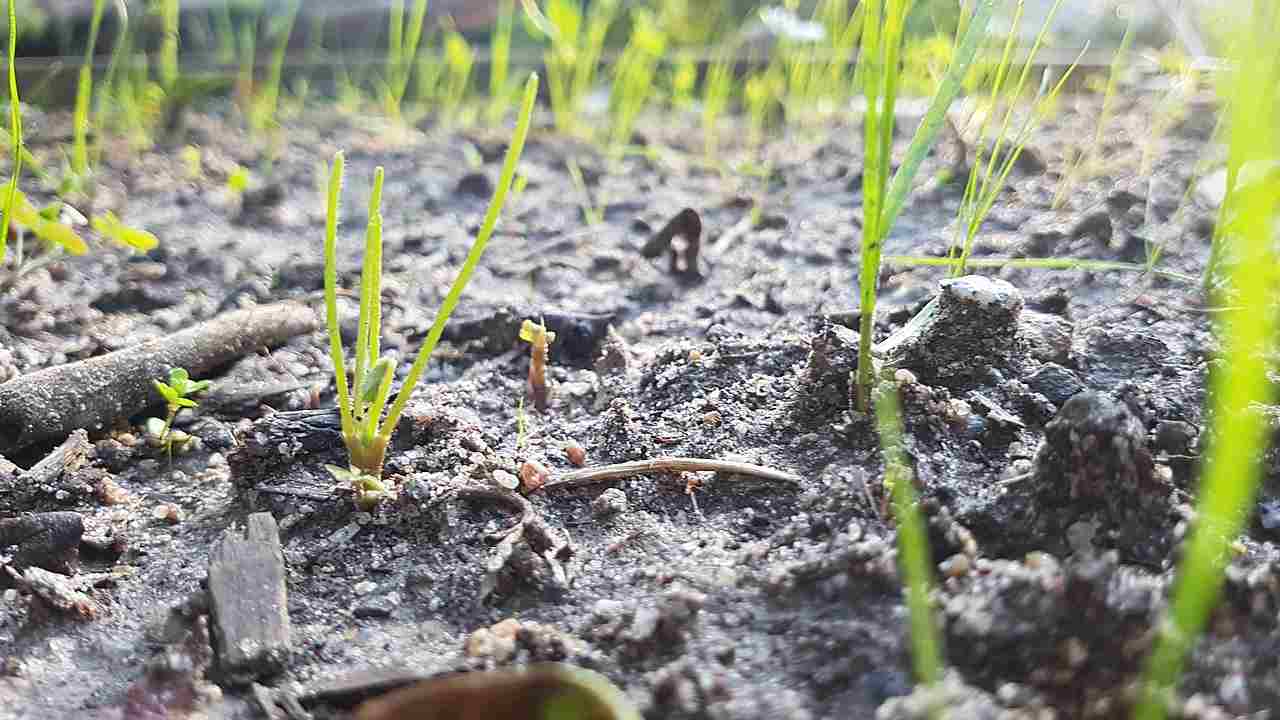
Earthworms belong to the phylum Annelida and the class Clitellata. They are invertebrates, lacking a backbone, and are characterized by their segmented bodies. Earthworms are classified as oligochaetes, which are a subgroup of annelid worms characterized by having few setae (bristles) on each segment. They are primarily terrestrial organisms, dwelling in soil and leaf litter in various ecosystems worldwide. Earthworms play crucial roles in soil health and ecosystem functioning as detritivores and decomposers, contributing to nutrient cycling and soil aeration.
Do Worms Decompose?
Yes, worms, particularly earthworms, play a significant role in decomposition within ecosystems. Here’s how:
-
Feeding Behavior: Worms feed on decaying organic matter, such as dead plant material, leaves, and other detritus found in the soil. They ingest this organic matter and break it down into smaller particles.
-
Digestive Process: Inside the worm’s digestive system, enzymes break down the ingested organic matter into simpler compounds. These nutrients are then absorbed by the worm to support its growth and metabolism.
-
Excretion of Castings: The processed organic matter is excreted by the worm in the form of nutrient-rich castings. These castings contain digested organic material along with beneficial microorganisms. When deposited in the soil, worm castings contribute to soil fertility and structure, enhancing nutrient availability for plants.
In general, worms, including earthworms, actively contribute to decomposition by breaking down organic matter and releasing nutrients back into the soil, thus playing a crucial role in nutrient cycling and ecosystem health.
What Do Earthworms Eat?
Earthworms are primarily detritivores, meaning they primarily feed on decaying organic matter and detritus found in the soil. Here’s a breakdown of what earthworms eat:
-
Dead Plant Material: Earthworms consume a variety of dead plant material, including fallen leaves, twigs, and decaying roots. They help to break down this organic matter into smaller particles through their feeding and digestive processes.
-
Organic Debris: Earthworms also feed on other types of organic debris found in the soil, such as dead insects, animal remains, and fecal matter. They play a role in recycling nutrients from these sources back into the soil.
-
Microorganisms: While earthworms primarily consume organic matter, they also ingest microorganisms present in the soil, such as bacteria, fungi, and algae. These microorganisms contribute to the decomposition process and provide additional nutrients for the earthworms.
Generally, earthworms have a varied diet consisting mainly of decaying organic matter and detritus, which they help to break down and recycle within ecosystems.
Function of Earthworms in Soil
Earthworms serve several important functions in soil ecosystems:
-
Soil Aeration: Earthworms tunnel through the soil, creating channels that allow air to penetrate deep into the ground. This process improves soil aeration, facilitating gas exchange between the soil and the atmosphere, which is essential for the respiration of plant roots and soil organisms.
-
Nutrient Cycling: Earthworms play a crucial role in nutrient cycling by breaking down organic matter into simpler forms through their feeding and digestive processes. They release nutrient-rich castings into the soil, enriching it with essential nutrients such as nitrogen, phosphorus, and potassium, which are vital for plant growth.
-
Soil Structure Improvement: As earthworms move through the soil, they mix and loosen soil particles, creating a more porous and well-structured soil environment. This improved soil structure enhances water infiltration, root penetration, and overall soil fertility.
-
Microbial Activity: Earthworms promote microbial activity in the soil by ingesting and digesting organic matter, thereby increasing the surface area available for microbial colonization. This enhances the decomposition of organic matter and the cycling of nutrients within the soil ecosystem.
Overall, earthworms play a critical role in maintaining soil health and ecosystem functioning by contributing to soil aeration, nutrient cycling, soil structure improvement, and enhancing microbial activity.
Earthworm’s Food Chain Position and Role
Earthworms occupy a crucial position in the food chain of many ecosystems:
-
Primary Consumers: Earthworms serve as primary consumers in the soil food web, feeding on dead organic matter and detritus. They are a vital link in transferring energy from plant material to higher trophic levels within the soil ecosystem.
-
Prey Species: Earthworms are preyed upon by various predators, including birds, mammals, amphibians, and other invertebrates. Predators play a role in regulating earthworm populations and maintaining ecosystem balance.
-
Nutrient Cycling: As primary consumers, earthworms contribute to nutrient cycling within ecosystems by breaking down organic matter and releasing nutrients back into the soil through their castings. This nutrient recycling process supports plant growth and sustains the entire food chain.
Earthworm’s Role in the Food Chain
Earthworms occupy a crucial niche in the food chain of terrestrial ecosystems:
-
Detritivores: Earthworms primarily feed on decaying organic matter, such as dead plant material and leaf litter, making them important detritivores in the soil food web. They break down this organic matter into smaller particles, initiating the decomposition process.
-
Food Source for Predators: Earthworms serve as a vital food source for various predators, including birds, mammals, reptiles, amphibians, and invertebrates such as beetles and centipedes. Predators play a key role in regulating earthworm populations and maintaining ecosystem balance.
-
Nutrient Cycling: Through their feeding and digestive processes, earthworms contribute to nutrient cycling within ecosystems. They digest organic matter and excrete nutrient-rich castings, which enrich the soil with essential nutrients such as nitrogen, phosphorus, and potassium. These nutrients are then available for uptake by plants, supporting primary producers and sustaining the entire food chain.
Conclusion: Earthworms as Key Ecosystem Contributors
Earthworms, through their dual roles as detritivores and decomposers, play a critical role in maintaining soil health and ecosystem functioning. Their activities contribute to nutrient cycling, soil aeration, soil structure improvement, and support the diverse array of organisms within terrestrial ecosystems. By feeding on decaying organic matter and releasing nutrient-rich castings, earthworms sustain the soil food web, providing essential nutrients for plant growth and supporting higher trophic levels.
As integral components of ecosystems worldwide, earthworms highlight the interconnectedness of organisms and underscore the importance of biodiversity in maintaining ecological balance. Understanding and conserving earthworm populations are essential for preserving soil fertility, ecosystem resilience, and overall environmental sustainability.
Future Perspectives: Earthworm Research and Conservation
Moving forward, continued research and conservation efforts focused on earthworm populations are essential for understanding their ecological significance and ensuring their continued contributions to ecosystem health. Key areas for future exploration and action include:
-
Ecological Studies: Further research is needed to elucidate the specific roles of earthworms in various ecosystems and their interactions with other organisms. This includes investigating their effects on soil structure, nutrient cycling, and biodiversity, as well as their responses to environmental changes such as climate change and land use practices.
-
Biodiversity Conservation: Earthworm biodiversity is poorly understood, with many species yet to be described. Efforts to document and conserve earthworm diversity are critical for preserving ecosystem function and maintaining soil health.
-
Sustainable Land Management: Promoting sustainable land management practices that support earthworm populations is essential for maintaining soil fertility and ecosystem resilience. This includes minimizing soil disturbance, reducing chemical inputs, and promoting organic farming practices that enhance soil organic matter and earthworm habitat.
-
Education and Outreach: Increasing public awareness about the ecological importance of earthworms can foster appreciation and stewardship of these organisms. Educational programs and outreach initiatives can empower individuals and communities to take action to protect earthworm habitats and promote soil health.
By prioritizing research, conservation, and education efforts related to earthworms, we can better understand and appreciate their vital contributions to ecosystem functioning and work towards ensuring their continued presence and prosperity in our natural environments.
Addressing Knowledge Gaps: Further Earthworm Research
Despite our understanding of earthworms’ importance in soil ecosystems, several knowledge gaps persist. Addressing these gaps through focused research endeavors is crucial for a comprehensive understanding of earthworm ecology and their contributions to ecosystem function. Key areas for further investigation include:
-
Effects of Climate Change: Research is needed to understand how climate change influences earthworm populations, activity levels, and their interactions with soil and other organisms. This includes studying their responses to temperature and precipitation changes, as well as the potential for shifts in distribution patterns.
-
Impact of Invasive Species: Invasive earthworm species can significantly alter soil ecosystems, potentially affecting native species, soil structure, and nutrient cycling. Research into the ecological impacts of invasive earthworms and strategies for mitigating their effects is essential for conservation efforts.
-
Microbial Interactions: Earthworms interact with a diverse array of soil microorganisms, including bacteria, fungi, and protozoa. Investigating these interactions and their implications for nutrient cycling, soil health, and ecosystem resilience can provide valuable insights into soil microbial ecology.
-
Urban Environments: Urbanization poses unique challenges for earthworm populations, including habitat fragmentation, pollution, and soil compaction. Research into the ecology of earthworms in urban environments and the development of urban soil management strategies are essential for promoting soil health and biodiversity in cities.
-
Ecosystem Services: Quantifying the ecosystem services provided by earthworms, such as soil aeration, nutrient cycling, and carbon sequestration, can help demonstrate their value to human well-being and inform conservation and land management decisions.
By addressing these knowledge gaps through interdisciplinary research efforts, we can deepen our understanding of earthworm ecology and their role in sustaining healthy soil ecosystems. This knowledge can inform evidence-based conservation and management strategies aimed at preserving earthworm biodiversity and promoting soil health in a changing world.
Collaboration and Knowledge Sharing: Advancing Earthworm Science
Collaboration and knowledge sharing among scientists, policymakers, conservationists, and the public are crucial for advancing earthworm science and promoting sustainable soil management practices. Key initiatives to facilitate collaboration and knowledge exchange include:
-
Interdisciplinary Research: Encouraging collaboration between scientists from diverse fields, including ecology, soil science, microbiology, and climate science, can foster a holistic understanding of earthworm ecology and its implications for ecosystem function.
-
Data Sharing and Open Access: Promoting open access to earthworm research data and publications can facilitate knowledge sharing and collaboration among researchers worldwide. This includes establishing online repositories for earthworm-related data and promoting the publication of research findings in open-access journals.
-
Stakeholder Engagement: Engaging stakeholders such as farmers, land managers, policymakers, and the public in discussions about earthworm conservation and soil management can foster collective action and promote the adoption of sustainable practices.
-
Education and Outreach: Developing educational materials and outreach programs to raise awareness about the importance of earthworms in soil ecosystems can empower individuals and communities to take action to protect earthworm habitats and promote soil health.
-
International Collaboration: Facilitating collaboration between researchers and organizations at the international level can promote knowledge exchange, capacity building, and the development of global strategies for earthworm conservation and soil management.
*Summary
- Earthworms play dual roles as decomposers and detritivores in soil ecosystems.
- They contribute to nutrient cycling, soil aeration, and soil structure improvement.
- Earthworms are primary consumers in the soil food web and serve as prey for various predators.
- Research gaps exist in understanding their responses to climate change and the impacts of invasive species.
- Collaboration and knowledge sharing are crucial for advancing earthworm science and promoting sustainable soil management practices.
| Key Points |
|
Earthworms are decomposers and detritivores.
|
|
They contribute to nutrient cycling and soil health.
|
|
Earthworms are primary consumers in the soil food web.
|
|
They are prey for various predators.
|
|
Research gaps include understanding climate change effects and invasive species impacts.
|
|
Collaboration and knowledge sharing are crucial for advancing earthworm science.
|
*FAQs
- What do earthworms eat?
- Earthworms primarily feed on decaying organic matter such as dead plant material, leaves, and other detritus found in the soil. They also ingest soil particles and microorganisms.
- How do earthworms contribute to soil health?
- Earthworms improve soil health by enhancing soil structure through their burrowing activities, increasing soil aeration, and promoting nutrient cycling through their feeding and casting activities.
- Are all earthworm species beneficial for soil?
- While many earthworm species contribute positively to soil health, some invasive species can have detrimental effects on native ecosystems. It’s essential to monitor and manage earthworm populations to mitigate potential negative impacts.
- Do earthworms require specific environmental conditions to thrive?
- Earthworms thrive in moist, well-aerated soils rich in organic matter. However, different species may have specific habitat preferences, so understanding their ecology is essential for effective conservation and management.
- How can I encourage earthworms in my garden or agricultural land?
- Practices such as reducing tillage, adding organic matter to the soil, and avoiding the use of chemical pesticides and fertilizers can create favorable conditions for earthworms and promote their presence in garden or agricultural settings.
- Can earthworms be used for composting?
- Yes, earthworms, specifically species like Eisenia fetida (red worms), are commonly used in vermicomposting to break down organic waste into nutrient-rich compost. Proper management of the worm bin and feeding them a balanced diet of organic materials are essential for successful vermicomposting.
-
Do earthworms have predators?
- Yes, earthworms are preyed upon by various predators, including birds, mammals, reptiles, amphibians, and other invertebrates such as beetles and centipedes. Predators help regulate earthworm populations in natural ecosystems.
